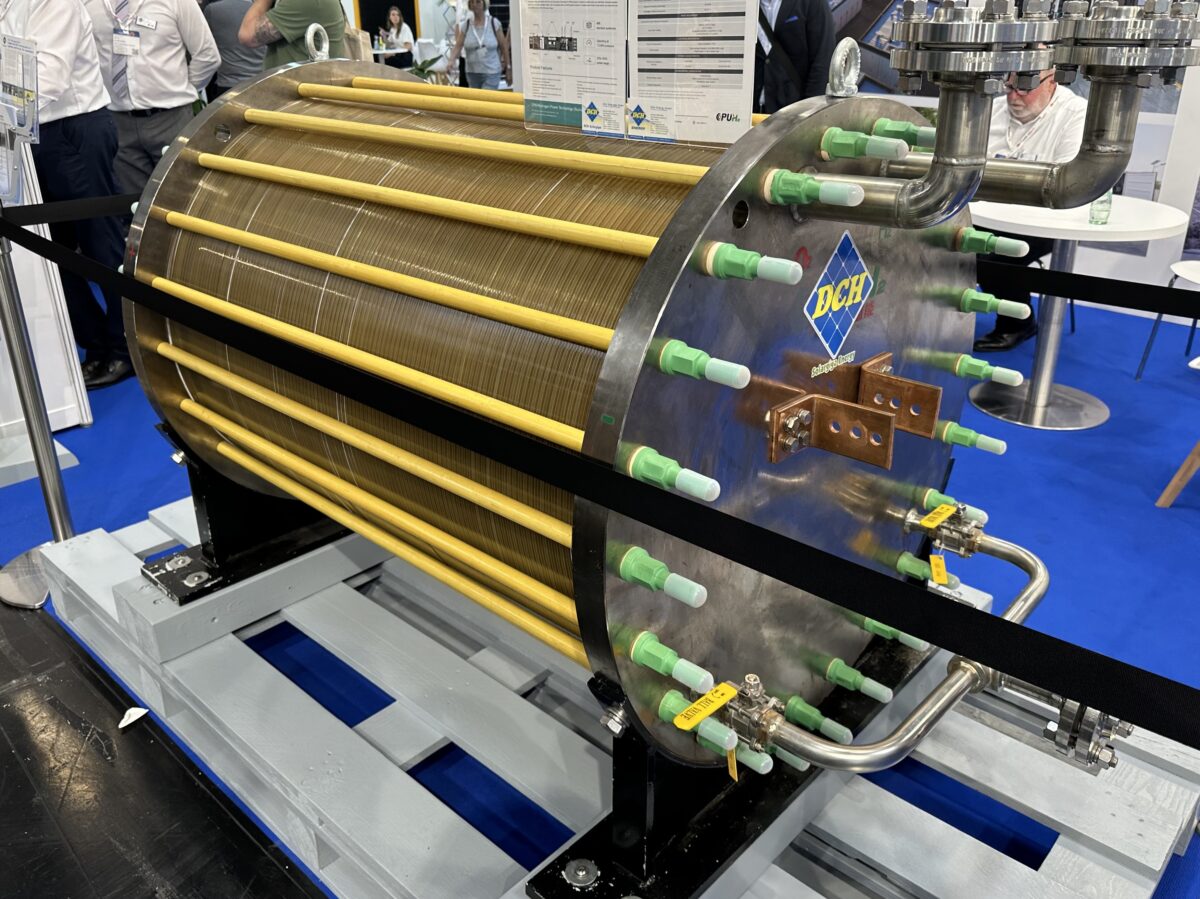The Hydrogen Stream: US government, ABI Research predict lower H2 costs
The US government says electrolysis could reduce clean-hydrogen production costs to $1/kg by 2031, while ABI Research claims the global levelized cost of hydrogen (LCOH) will become cost-competitive by the end of this decade, dropping to $2.50/kg.
December 6, 2024 Sergio Matalucci

Image: pv magazine
Share
    
The US Department of Energy (DoE) said in a new report that electrolysis could reduce clean-hydrogen production costs in the United States to $1/kg by 2031 through technological advancements, manufacturing, economies of scale, and clean energy system integration. “Achieving the Hydrogen Shot goal will require a strategic allocation of resources and efforts across these areas,” it said, noting the role of public support. The DoE noted that five electrolyzer technologies are now under development: proton exchange membranes (PEM), liquid alkaline, oxide-ion-conducting solid-oxide electrolyzer cells (SOEC), alkaline exchange membranes (AEM), and proton-conducting solid-oxide electrolyzer cells (H-SOEC).
Evoloh said that it has signed a supply agreement with a “large, US-based renewable energy developer” for 0.5 GW of electrolyzer stacks. Jimmy Rojas, the founder and CEO of Evoloh, said the deal adds to more than 16 GW of “signed intent” for the supply of Nautilus stacks and modules. The cleantech startup is now commissioning a new pilot testing facility at its headquarters in Santa Clara, California.
ABI Research said that the global LCOH will become cost-competitive by 2030, dropping from an average of $6/kg to $7/kg to about $2.50/kg by the end of the decade. It said it expects the LCOH to fall to $1.80/kg by 2040, mainly due to lower renewable energy prices, and to reach around $1/kg by 2050 as the market matures. The research firm said it also expects rapid reductions in production capex, driven by higher electrolyzer efficiencies and lower costs, starting from 2027.
VNG AG said that it will jointly develop a 500 MW electrolyzer with HyCC to produce green hydrogen in Lutherstadt Wittenberg, Germany. The partners will begin the approval and consultation phase in 2025, with a final investment decision expected in 2026 and operations slated to start in 2029, said Leipzig-based VNG. Hydrogen will initially supply local industries, such as SKW Piesteritz, with potential sales to industrial customers in the central German chemical triangle, depending on new hydrogen infrastructure.
The Dutch government said that it has decided to prioritize hydrogen and CO2 infrastructure, with plans to complete the pipelines between 2031 and 2033. The Dutch cabinet also said it has decided to remove ammonia from the Delta Rhine Corridor (DRC) project, as the plan is not yet sufficiently developed and will require more time. It has also chosen not to include a reusable pipeline for the same reason, but it left open the possibility of adding these components at a later date.
pv-magazine.com |





